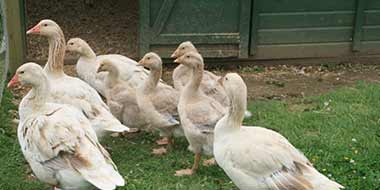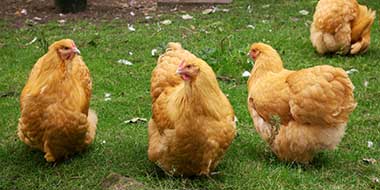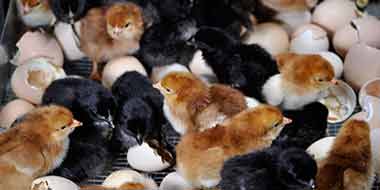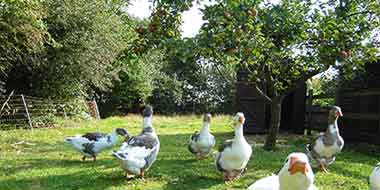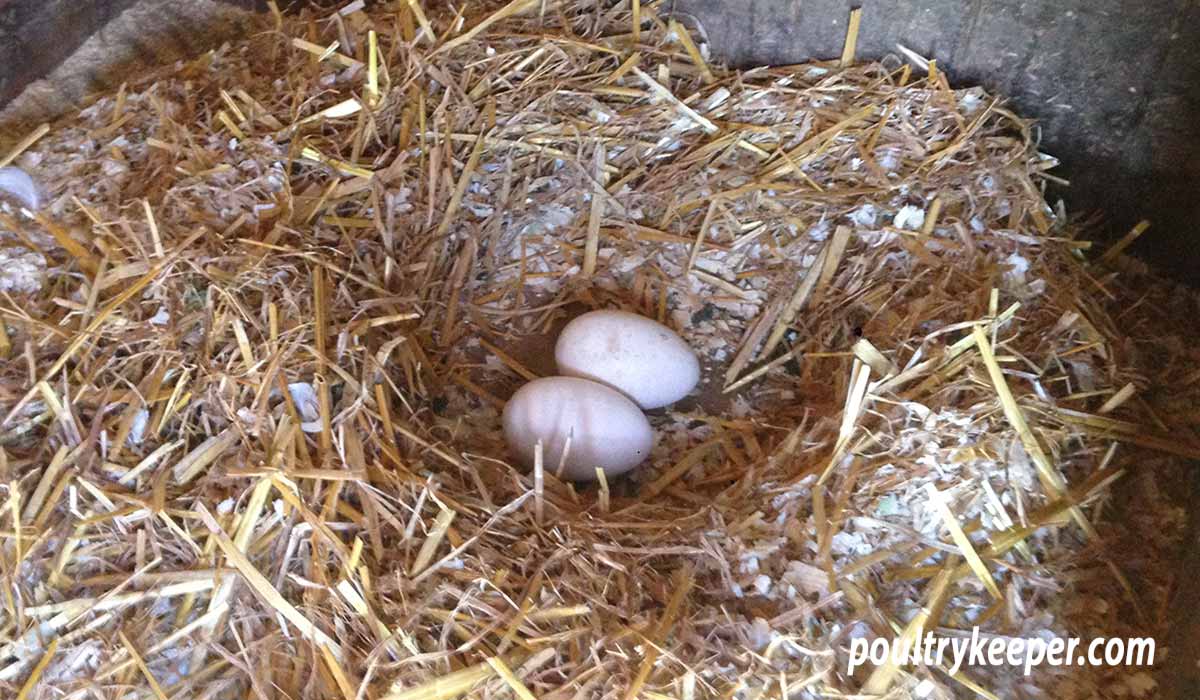
A goose will build a nest and start laying eggs. The question is, should you remove them? Or wait for her to lay more? And how do you know if a goose is ready to incubate her eggs?
Once a goose starts laying eggs, if you remove them, she will continue to lay. You can collect and store them, ready for incubation, or you can leave them to accumulate in the nest.
After laying a clutch of 8 to 12 eggs in the nest, a goose will sometimes get the instinct to go ‘broody’ or sit on her eggs. Medium weight geese seem to be the better broodies. Some heavy breeds like the African and Toulouse can be clumsy, standing on their eggs which can break them.
Will a goose always go broody?
A goose may not always go broody and sit on her eggs. Often, with the way that goose breeds have been modified through selective breeding, this characteristic is lost ,especially if the breed has been created as a utility bird for producing meat or eggs.
If she does go broody and decide to sit on her eggs, she might line the nest with her down feathers and then when she decides to start sitting on her eggs, she will not leave the nest except for short periods of time for food and water.
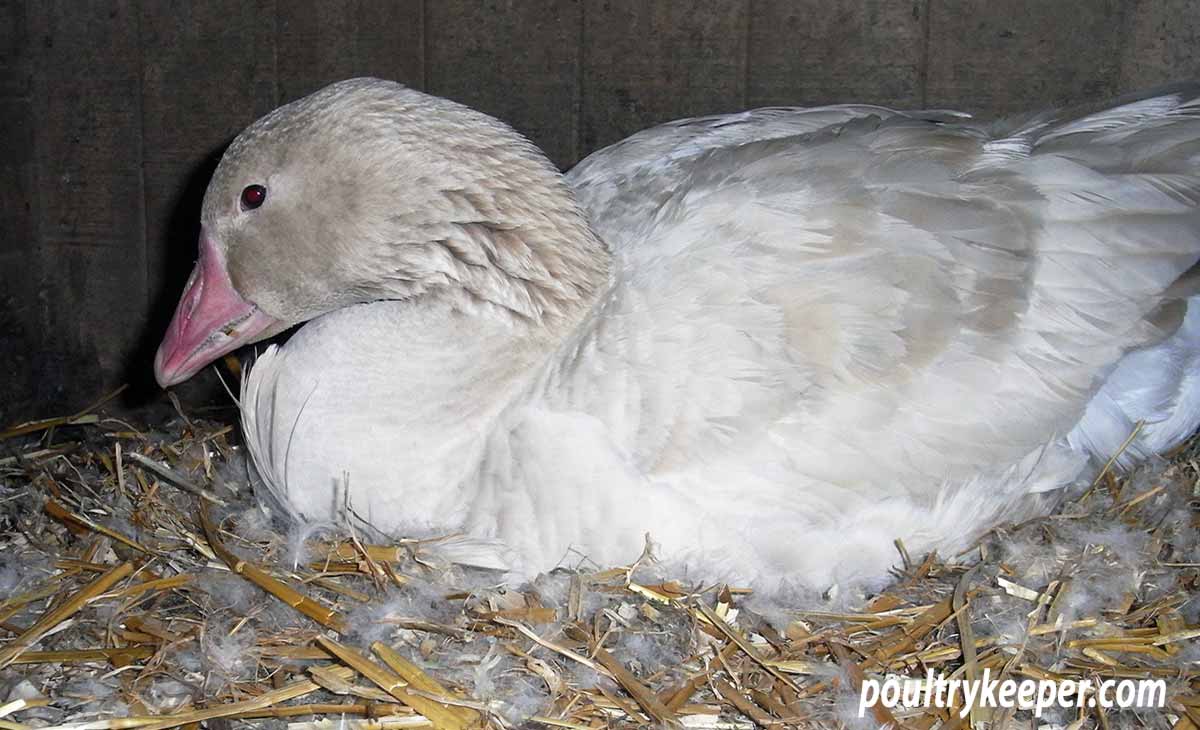
Nesting material
Ensure there is sufficient nesting material available for the goose to nest with and a thick enough layer of shavings on the floor as the goose may like to make a hollow to make her nest, and if her eggs sit on a solid surface, her eggs may get damaged.
She doesn’t always choose the best location for her nest. If the nest is outside, ensure the goose is protected from magpies and crows (laying cut branches around open entrances can help).
Be careful if you go near her as she will be very protective over her nest, and you may get pecked if you go too close, more likely by the gander as he has nothing to do except guard his goose at this time!
Leaving the nest
Later on during the incubation period, she will probably leave the nest a little more for slightly longer periods of time.
A broody goose will get run down while she is sitting, so it is important to only let a goose sit that is in good health and has everything provided for her within easy reach of her house.
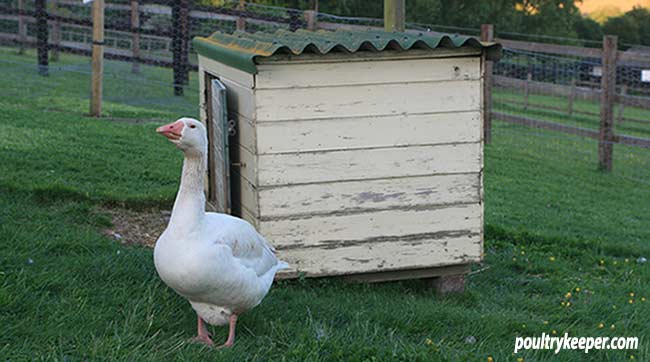
I have written an article on caring for a broody goose that will help you care for her while she sits. If you think of removing the eggs to incubate artificially with an incubator, then the Incubation and Hatching Geese category is a good place to start.

